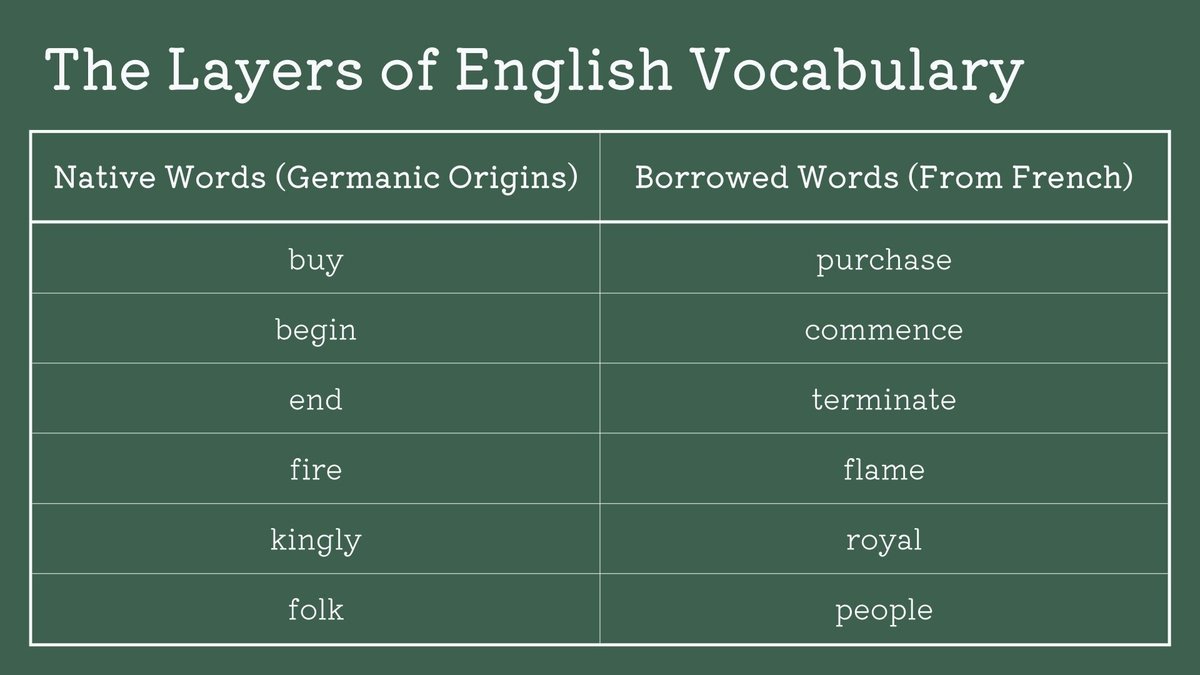
#8 Understanding the Subtle Differences in Synonyms Part2
In my last article, we explored Japanese synonyms, but of course, English has its own set of synonyms as well. When you examine English synonyms, you’ll notice some similarities with their Japanese counterparts. Understanding these connections, along with the history behind them, can spark even more interest in Japanese synonyms. If you’ve been finding it challenging to memorise Japanese vocabulary due to the abundance of synonyms, I hope this perspective helps you see it in a more positive light. Often, studying a second or third language reveals things we might take for granted in our native tongue.
The Number of English Speakers and English Vocabulary
Because of the British Empire, English spread across the globe and has become the international language we know today. According to books I read, there are roughly 350 million people who speak "English as a Native Language". In countries like Singapore, India, and Nigeria, where English is spoken as a second language, the number of speakers is also around 350 million. And, those who speak "English as a Foreign Language", in countries like Japan, outnumber both of these groups. Altogether, it’s estimated that around 1.5 billion people speak English.
With so many speakers worldwide, it’s no surprise that countless dialects and new words have emerged, making the vocabulary of English incredibly vast. The sheer number of synonyms alone is staggering. The Oxford English Dictionary reportedly includes over 500,000 words. To put that in perspective, the German dictionary contains around 200,000 words, the French dictionary about 100,000, and Japanese dictionaries also list around 200,000 words. The difference is astounding! So, if there’s a slight margin of error in these numbers, forgive me haha
Commonalities Between English and Japanese Synonyms
Did you know that there are similarities between English and Japanese synonyms? I once wrote an article suggesting that comparing your native language with the language you're learning can help reinforce your memory when you discover commonalities between them. This is a method I personally use, and if you're interested, I’d encourage you to give it a read!
Until the Middle Ages, Britain experienced a series of invasions and conquests, from the Romans to the Norse, and most notably, the Norman Conquest. Various languages and cultures merged during this time, with the Norman Conquest being the most significant. The Normans, who spoke French, ruled over England for a long period, and as a result, the English language absorbed a substantial number of French loanwords.
Now, consider this: just as Japan borrowed Chinese characters from China, Britain borrowed French words from France. Both are small island nations influenced by powerful continental neighbours. Just as Japan was seen as somewhat provincial by China, Britain was similarly regarded by France. The parallels are striking. In hindsight, it’s fascinating to see how the histories of these two island nations, both separated from the continent by the sea, share some similarities, including the influence of larger, more advanced cultures.
Let’s Compare Synonyms

Let’s start by looking at English. On the left, English has Native Words, which hold a similar position to the original Japanese words (和語 wago) I introduced in Part 1. On the right are Borrowed Words, which correspond to the Chinese loanwords (漢語 kango). As you might expect, Native Words are more commonly used in everyday conversation—they feel more casual, colloquial, and easier to use. I find myself using them often, too! haha Borrowed Words, on the other hand, tend to be more formal, often appearing in written language with a more objective, neutral tone.
However, as with any language, there are always exceptions. For example, with words like “people”, the usual rules don’t always apply, so keep that in mind!

The same goes for Japanese. Here are a few more examples beyond those I introduced in Part 1. Take, for instance, the words for "lunch": "昼めし(hirumeshi)" and "昼食(chuushoku)" . The level of formality is completely different. You wouldn’t use the casual "昼めし(hirumeshi)" with someone of higher status unless you’re very close to them.
More Layers of Synonyms
We've already saw how English contains both native words and those borrowed from French, but there are also many borrowings from Latin, Greek, German, and even Japanese. Latin and Greek, in particular, saw a huge influx during the Renaissance, and their influence is still felt today, especially in formal writing such as academic papers. These words often carry even more authority and formality than their French counterparts.
For example, consider the progression from native English to French borrowings to Latin/Greek borrowings:
"ask", "question", "interrogate"
"gift", "present", "donation"
"word", "vocabulary", "lexicon"
It’s clear that Latin and Greek-derived words are often less common in everyday speech and tend to be used in more specialised or restricted contexts.
In Japanese, aside from native words and Chinese borrowings, there’s also a significant number of Katakana words. These are often used for new concepts or nuances that didn’t previously exist in Japan and are difficult to translate into hiragana or kanji. I plan to explore this topic of Katakana words in my next article, so stay tuned!
Summary
Some Japanese learners who try to express themselves properly, will search Google or dictionaries for the perfect word as much as possible, often ending up with complex terms derived from Chinese (漢語). It's admirable to use words you've researched to express yourself. However, just as French or Latin-derived English words can come across as formal, rigid, or limited in everyday use, the same can be said for Chinese-derived words in Japanese. Especially for beginners and Basic levels, it might be better to start with native Japanese words (和語), which typically have broader and more versatile meanings (often represented by one kanji character followed by hiragana).
That said, I understand that trying to navigate these nuances while learning Japanese can be challenging. Still, I hope that knowing about these tendencies in both English and Japanese synonyms helps you enjoy your language learning even more.
Thank you for reading!
この記事が気に入ったらサポートをしてみませんか?
